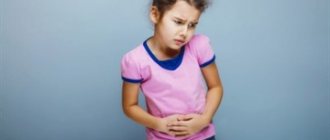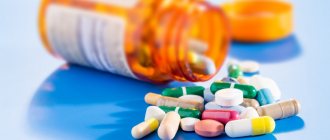Benefits for the body of a pregnant woman
Fish has a beneficial effect on the health of both mother and child. Recent studies have shown that pregnant women who ate seafood 2-3 times a week reduced the risk of developing diseases in their child. In addition, it helps the development of the fetal brain, as it contains polyunsaturated fatty acids.
Beneficial properties of omega-3 for a pregnant woman:
- helps fetal brain development;
- improves the child's vision;
- improves the mother's sleep quality.
This product is useful for a pregnant woman and for the fetus, as it has a high content of essential vitamins and minerals.
What not to eat before taking tests
Expectant mothers often receive disappointing test results, but feel great. The fact is that some products can affect the performance of systems and organs. To get reliable data, women must know some rules.
What not to eat before a biochemical blood test:
- dinner before the day of delivery should be light and low-calorie;
- during the day you should not get carried away with sweets, smoked, fatty, salty foods;
- You need to exclude carrots and citrus fruits;
- It is better to include easily digestible protein and complex carbohydrates - cereals, vegetables.
What not to eat before donating urine:
- carrots, onions, rhubarb, bay leaves, turmeric, persimmons, beets, strawberries can change color;
- It is forbidden to eat watermelon; analysis may show nitrate content;
- Fatty, smoked, spicy, salty foods are not recommended;
- You should also not drink mineral water, which can affect acidity, coffee, or strong tea.
What kind of fish is best to eat during pregnancy?
All types of fish have beneficial properties for the human body. However, some can have a positive effect on the body of a pregnant woman, while others can have a negative effect. During pregnancy you should avoid:
- shark meat;
- swordtails;
- marlins.
This type of fish contains high levels of mercury, which can negatively affect a child's developing nervous system. You should also avoid eating raw shellfish during pregnancy.
Marine
Consuming seafood during pregnancy is very important for pregnant women. They have a fairly large amount of protein and essential amino acids. In addition, they are easily digested, which does not cause problems with the gastrointestinal tract.
Marine inhabitants contain the following microelements:
- fluorine;
- iodine;
- vitamin D;
- magnesium;
- calcium;
- potassium;
- selenium.
All these vitamins and minerals are simply necessary for pregnant women, as they help the fetus to fully develop.
River
An expectant mother always needs a sufficiently large amount of microelements that will help the child grow while he is in the womb.
River fish is one of the lowest in calories, but it contains few healthy fats that a pregnant woman simply needs. You should choose it if you are likely to have allergies or are overweight. In other cases, it is better to give preference to fattier varieties.
River fish may contain worms, which can negatively affect the health of mother and child.
Red
Red fish is one of the healthiest foods to eat during pregnancy.
It has a sufficiently large number of microelements that are necessary for the developing fetus. Red fish contains:
- carotene (vitamin A);
- B vitamins (B2, B6, B12);
- potassium;
- calcium;
- iron;
- phosphorus;
- selenium;
- polyunsaturated fatty acids;
- protein that contains essential amino acids.
Red fish has a beneficial effect on the body of a pregnant woman and helps the child develop. It improves the general condition of a woman, normalizes the functioning of the digestive tract, and also prevents the development of hypovitaminosis.
Fish roe
Caviar is not as healthy a product as fish. Despite the fact that it contains quite a lot of vitamins and essential microelements, its excessive consumption can lead to digestive tract disorders. Therefore, to avoid this, you need to eat no more than 100-150 g of caviar per week. In addition, caviar contains quite a lot of salt, which can cause swelling and increased blood pressure.
Lightly salted
Many women during pregnancy crave something salty, this is due to a lack of chlorides in the body.
You can replenish them by eating fish. Lightly salted is allowed during pregnancy, however, if the woman does not suffer from edema or high blood pressure. The amount should not be more than 100 g per dose, no more than once a week. After eating lightly salted fish, you should not drink tea or coffee, they increase the risk of edema.
Canned food
It is better to buy canned food in its own juice, rather than in oil. This will avoid the negative impact of the oil on the developing fetus. In addition, you should definitely pay attention to the manufacturer and the condition of the can. If the canned food contains natural preservatives (salt, vinegar, pepper, citric acid), then they can be consumed by pregnant women, but if the manufacturer specifies other ingredients, then it is better to avoid such a product.
Menu during pregnancy
Knowing what pregnant women should not eat, a woman can improve her own well-being and provide her baby with the necessary set of important elements. There are general nutritional rules recommended for all mothers. Correct weight gain, blood pressure readings, test results, and coordinated work of the whole body depend on a balanced menu.
List of foods not to eat:
- cheeses that have not undergone the pasteurization process, varieties with various types of mold, as well as those made from goat’s milk, contain bacteria that can harm the pregnant woman during pregnancy;
- eggs can only be eaten hard-boiled, or when the yolk has completely hardened, you should exclude homemade sauces and desserts where raw eggs are used in recipes - mayonnaise, ice cream;
- meat dishes and offal; it is not advisable for expectant mothers to consume pates, liver, as well as dishes that have not undergone sufficient heat treatment, there is a high risk of bacterial damage;
- mushrooms are considered difficult foods to digest; they are also like a sponge, absorbing any toxins collected in areas with an unfavorable environmental situation, which can cause poisoning of the body, exposing the risk of pregnancy failure;
- Many women do not know why pregnant women cannot eat sushi; there is a high probability of raw fish and seafood becoming infected with parasites; they remain even when marinated; also, stale protein products lead to severe intoxication.
Tips and tricks
High-quality fish is a guarantee of the health safety of a pregnant woman and her unborn child. These recommendations will help you choose good, fresh fish to eat:
- The smell should be fresh. If it smells like rottenness or a product that has been sitting for a long time, then this may indicate that it is not fresh.
- The eyes should be bright and shiny. If they are milky and cloudy in color, this indicates that the product has been on the counter for a long time.
- The scales should shine and have a metallic color. Stale fish has a dull hue.
- The gills must be clean and bright red. If they are dull and brown, and also have mucus, then this is a sure sign that the product is stale.
- When buying steaks or pulp, you need to check the color and elasticity of the meat. If it is soft and pale, this indicates that it has been lying on the counter for a long time.
Which varieties are suitable for pregnant women
The question is which fish is the healthiest during pregnancy?
, occupies not only doctors, but also the women themselves who are expecting a child. This is not difficult to find out; it is enough to clarify the content of polyunsaturated fatty acids, which can vary significantly depending on the type. The champions in this category are marine species. Many nutritionists believe that the most beneficial fish are those from the cold northern seas: salmon, sockeye salmon, chum salmon, mackerel. These species feed on small marine organisms and algae that actively synthesize fatty acids. They are indispensable for pregnant women, as they have an active influence on the development of the child. Omega-3 polyunsaturated fatty acids (docosahexaenoic acid and eicosapentaenoic acid) are considered especially valuable. These compounds contribute to the formation of the child’s nervous system and the maturation of brain cells). Sea fish dishes are especially needed in the 3rd trimester of pregnancy. However, they are also useful at the beginning of fetal development, as they have a positive effect on the vision of the unborn child and strengthening his immunity.
Fish is necessary not only for the baby, but also for the expectant mother. It increases the elasticity and density of tissues, preventing ruptures during childbirth. Light and nutritious meals do not provoke constipation and diarrhea, and improve resistance to various infections, which are especially dangerous for pregnant women. Fish promotes the active production of serotonin, which improves mood and prevents depression.
The champion in the content of omega-3 polyunsaturated fatty acids is the common herring. Mackerel and salmon take honorable second and third places. To obtain the daily norm of valuable acids, it is enough to eat 150 g of fish per day. The menu will be complemented by less fatty, but very healthy species: flounder, pollock, cod, catfish, whitefish. It is preferable to use fresh or chilled fish, but if this is not available, frozen fish can be used. It is worth considering that repeated freezing deprives the product not only of its taste and juiciness, but also of most of its beneficial qualities. Buy fish carefully from trusted retail outlets that guarantee the quality and unconditional freshness of the product.
Nutritionists are confident that young individuals who have not had time to accumulate harmful heavy metals in their tissues are especially beneficial. When purchasing fish, you should choose the smallest carcasses available for sale. Large specimens with caviar or yellowish fat are best left on the store shelf.
The healthiest fish for pregnant women, according to doctors
For pregnant women, the balance of vitamins and minerals is very important.
Therefore, nutritionists recommend the fish richest in these microelements - red. It has all the essential amino acids and polyunsaturated fats.
In addition, it is rich in B vitamins, which have a beneficial effect on the development of the fetal nervous system.
The most useful varieties include:
- salmon;
- sturgeon;
- salmon;
- whale;
- trout;
- pink salmon.
Why pregnant women should not eat fish: folk beliefs
From time immemorial, many superstitions have been associated with pregnancy. They are all built on the same principle: like causes like. Therefore, pregnant women are not recommended to knit, so that the baby does not get entangled in the umbilical cord, and they are forbidden to eat twin fruits, so as not to give birth to twins. Fish, according to superstitious people, is very dangerous: it can neither walk nor make sounds - unlike land animals and birds, fish are completely mute. That's why you can't eat it while expecting a baby - otherwise he will be born deaf and dumb and will never get back on his feet.
Whether it is worth believing in such ridiculous signs, everyone decides for himself. But there is no evidence that disabled children were born only to women, especially those who leaned on fish. Quite the contrary: if the food is nutritious, varied, and there is enough fish or seafood in the diet, then the likelihood of having a healthy baby is much higher. Therefore, it is better to rely in everything not on superstitions, but on your common sense and the advice of doctors.
Dangerous moments
Fish is considered a relatively safe food to eat, but it can hide dangers.
- It may be toxic. This happens when it is caught from dirty water sources. Such a product can be dangerous for pregnant women because it causes permanent abnormalities in the development of the fetus.
- May cause allergies. Many varieties are allergenic, so if you have a predisposition, you should consult your doctor.
- High levels of protein and fat. On the one hand, fish contains a lot of protein and healthy fats, which have a beneficial effect on the body. However, on the other hand, large amounts of protein and fat can cause problems with a woman’s kidneys or liver.
- Fish may contain parasites, such as worms, which can cause miscarriage.
Almost any fish is allowed during pregnancy, this is due to its rich composition. A large amount of protein, vitamins and minerals make it one of the healthiest foods needed by an expectant mother. Exceptions include smoked and salted fish, which negatively affects the general condition of a pregnant woman, so it is important to eat it boiled, fried or baked.
Nutrition in the second and third trimester
After the 16th week, the golden time begins for women, by this moment the signs of toxicosis have passed, and she can enjoy her condition. The fetus grows and the expectant mother begins to gain weight.
To prevent a pregnant woman from gaining extra pounds, she needs to follow simple recommendations:
- eat often in small portions, the diet should include a large amount of fiber, proteins and vegetable fats;
- It is useful to drink fruit drinks, rosehip decoction, green tea with lemon;
- in the second trimester, you should avoid foods that cause heartburn and gas formation;
- the amount of salt should not exceed 6 grams. per day, this will avoid the occurrence of edema;
- in the third trimester, a woman needs to carefully monitor the caloric content of her foods so as not to gain weight before giving birth, which can complicate the process of giving birth and the subsequent recovery period;
- If you are overweight, your doctor may recommend fasting days; all sweets, including fruits, are excluded, which is why pregnant women should not eat bananas, melon and persimmons.
Cooking rules
As already mentioned, fish during pregnancy will be more beneficial if it is steamed or baked in foil. It is not recommended to fry it in oil; the fat content of the product increases sharply, which creates an excess load on the liver and gastrointestinal tract.
Heat treatment of fish is carried out according to the 10-minute rule. This means that for every 2.5 cm of fish in thickness, 10 minutes of cooking time should be allowed at 200° C. If the product is frozen, it should be allowed to thaw before cooking.
What do pregnant women themselves say?
Regardless of the opinion of doctors, pregnant women have their own opinion on this matter, which, naturally, differs from the opinions of doctors. Most women, being pregnant, ignore these kinds of warnings and cannot deny themselves such a delicacy. They consciously buy smoked fish and eat it whenever they want. The main thing is that the fish is absolutely fresh.
You also need to ensure that after such a meal, elementary overeating does not occur and you do not feel ill. Therefore, you should eat smoked fish in very small portions - about two small pieces.
Of course, maybe smoked fish won’t do any harm if the woman herself is in good health to begin with. When there is a threat of miscarriage, the pregnancy process proceeds very poorly, which affects the health and well-being of the pregnant woman. Then, of course, there is no need to take unnecessary risks.
Do not forget that smoked fish can still be considered the most dangerous food product, and we are talking not only about pregnant women, but in general. Therefore, it’s up to you to decide whether to abstain from smoked fish or eat it!
Pregnant women always want something tasty, and preferably something that is contraindicated for them. Some foods can be eaten in moderation, while others are best avoided by clenching your fists and remembering your willpower. What to do with fish during pregnancy
?
It’s not so simple here: it depends on the type of fish and the cooking method.
.
For example, pollock, which the Japanese consider environmentally friendly, as well as cod and hake - the so-called dietary white fish. They are introduced into complementary feeding for babies in their first year of life, which means they are also useful for expectant mothers.
Fish, especially sea fish, is an excellent source of phosphorus, fluorine, selenium, iodine, magnesium, potassium and calcium. Iodine is especially valuable in it; calcium, vitamin D and polyunsaturated fatty acids (called Omega-3) are also important.
It is best to stew or steam fish during pregnancy. It is allowed to bake in sour cream and under a vegetable cap. But frying in a frying pan with plenty of oil is not good for anyone, and especially for those who are expecting a child.
Smoked fish should be avoided during pregnancy
– both hanging and hot and cold smoked. Substances that penetrate into such fish along with liquid smoke are dangerous to everyone and over time cause damage to most organs.
However, young children and pregnant women are the most vulnerable - their bodies cannot withstand the onslaught of phenols, formaldehydes and carcinogens.
In addition, manufacturers often try to hide stale goods behind the smell of smoke: it is the expired fish that goes into the smokehouse. This applies to a lesser extent to home-smoked fish caught with your own hands.
Surprisingly, red caviar, considered one of the healthiest and vitamin-rich delicacies, is also prohibited (albeit not strictly) for pregnant women. If you want and have a reason, you can only afford a couple of sandwiches on New Year’s Eve.
Why is that? Precisely because of the vitamin diversity. More specifically, vitamin A is to blame, which, when concentrated in the body, becomes a threat to motherhood.
Tuna, shark, mackerel and swordfish are also prohibited
. They contain mercury substances that cause irreparable harm to the fetus. Therefore, put off gourmet explorations for later.
Under no circumstances should you visit sushi bars and eat raw fish in the form of rolls and sashimi.
. In principle, it is better to pass by such establishments.
There are known cases of poisoning in women who ate only vegetarian rolls: they cut them with the same knife as raw fish.
Can a pregnant woman eat seafood?
Be sure to put all kinds of seafood on the table. , mussels, squid, lobsters are not only tasty, easily digestible food, but also a source of valuable iron and proteins. By eating seafood a couple of times a week, you will avoid anemia.
However, avoid canned food, buy only fresh or frozen food - they retain more vitamins and do not have antiseptics under the lid.
Lots of mercury
Fish, especially those caught off the coast of Canada and the USA, in the Baltic Sea, contain heavy metals, primarily mercury. It is especially harmful for pregnant women - it can cause delays in the mental and physical development of the child.
Mercury enters the water along with industrial waste and settles at the bottom. From here its movement along the food chain begins: phytoplankton - zooplankton - fish. The maximum mercury accumulates in predators and bottom fish. Mercury gradually accumulates in the body, up to 30% of it from the mother’s body passes through the placenta to the child.
However, we do not advise you to panic and refuse sea fish altogether. The main thing is not to buy fish that was caught somewhere unknown and has not passed the mandatory control of sanitary services. Then the cons will not be able to outweigh the pros of this truly wonderful product.








